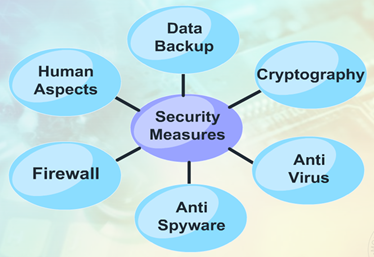How do we ensure ethical considerations around privacy and brain data security?

How do we ensure ethical considerations around privacy and brain data security?
by Maximilian 11:28am Jan 24, 2025

Ensuring ethical considerations around privacy and brain data security is critical, especially as brain-computer interface (BCI) technologies and neuroscience research advance. Here are key approaches to address these concerns:
1. Develop Robust Legal and Regulatory Frameworks
Data Ownership: Establish laws that clarify ownership of brain data, ensuring individuals retain control over their neural information.
Informed Consent: Require detailed consent protocols that clearly explain what data is being collected, how it will be used, and potential risks.
Data Minimization: Mandate that only essential data is collected and retained, reducing exposure to misuse.
2. Enhance Data Security Measures
Encryption: Use end-to-end encryption for brain data at all stages—collection, transmission, and storage.
Anonymization: Strip personal identifiers from data to reduce the risk of re-identification.
Access Controls: Implement strict access protocols, ensuring only authorized personnel can view or analyze brain data.

3. Establish Ethical Guidelines
Transparency: Ensure companies and researchers disclose how brain data will be used, shared, and stored.
Fair Usage: Prevent exploitation of brain data for unauthorized purposes, such as surveillance or targeted manipulation.
Non-Discrimination: Safeguard against using brain data in ways that could lead to bias or discrimination.
4. Incorporate Technical Safeguards
Real-Time Monitoring: Develop systems that can detect and alert users to unauthorized access or tampering with brain data.
Data Revocation: Allow individuals to delete or revoke access to their brain data if they choose to withdraw consent.

5. Foster Public Awareness and Dialogue
Education: Inform the public about how brain data is collected, its potential uses, and associated risks.
Engagement: Create platforms for open discussions involving stakeholders, including ethicists, technologists, policymakers, and the general public.
6. Implement Oversight Mechanisms
Ethics Boards: Require BCI developers and researchers to undergo review by independent ethics committees.
Audit Systems: Regularly audit organizations handling brain data to ensure compliance with ethical and legal standards.
Global Collaboration: Work towards international agreements to standardize ethical practices and prevent jurisdictional loopholes.
7. Design User-Centric Technologies
User Control: Ensure users can easily manage their data, including viewing, editing, and deleting it.
Privacy-by-Design: Integrate privacy considerations into the development lifecycle of BCI systems and related technologies.
Key Considerations
Mental Privacy: Protect individuals' thoughts and intentions from unauthorized decoding or surveillance.
Dual-Use Risks: Address the potential misuse of brain data for malicious purposes, such as military or coercive applications.
Addressing these areas with proactive, multidisciplinary efforts ensures that advances in brain technology respect individual rights, maintain public trust, and promote ethical innovation.






